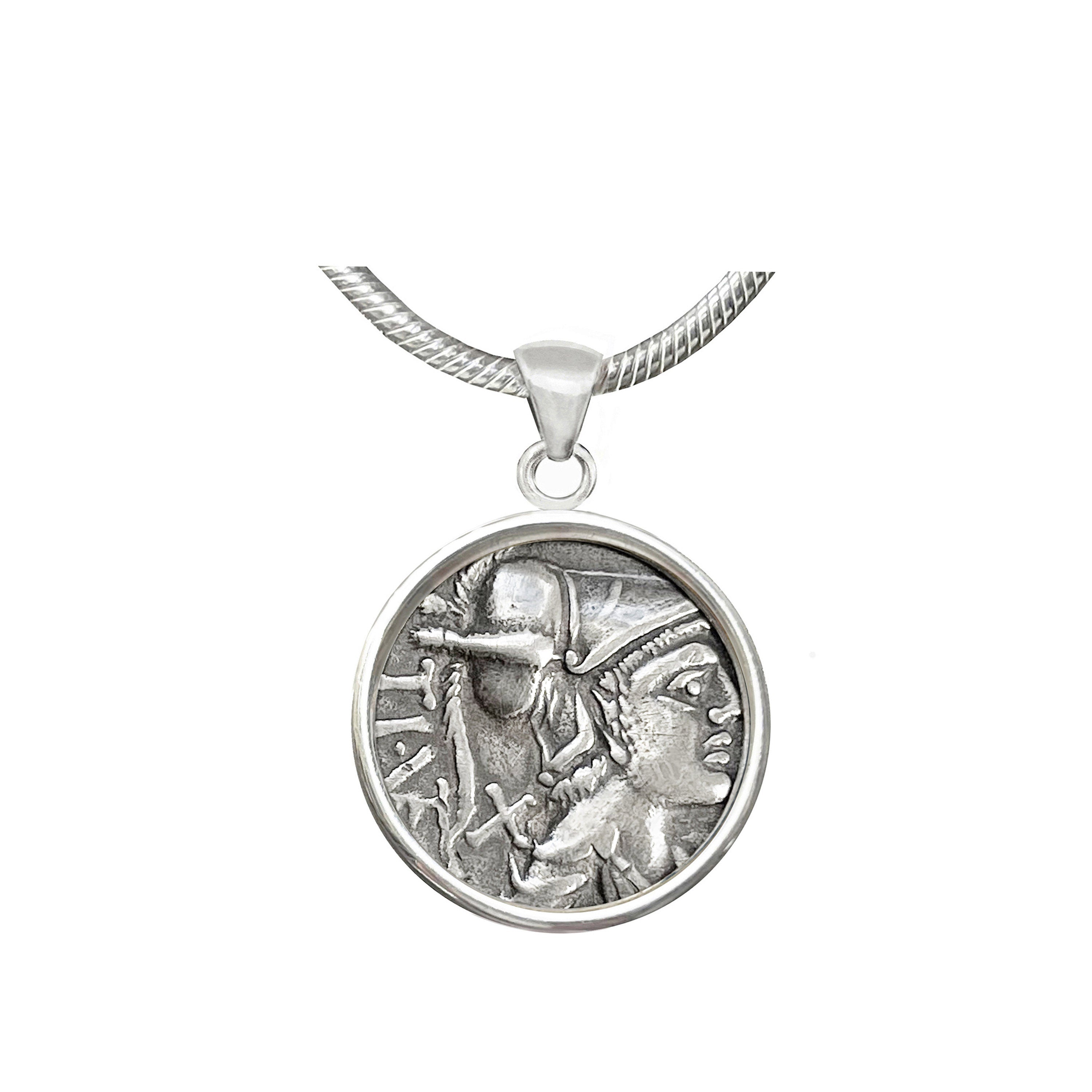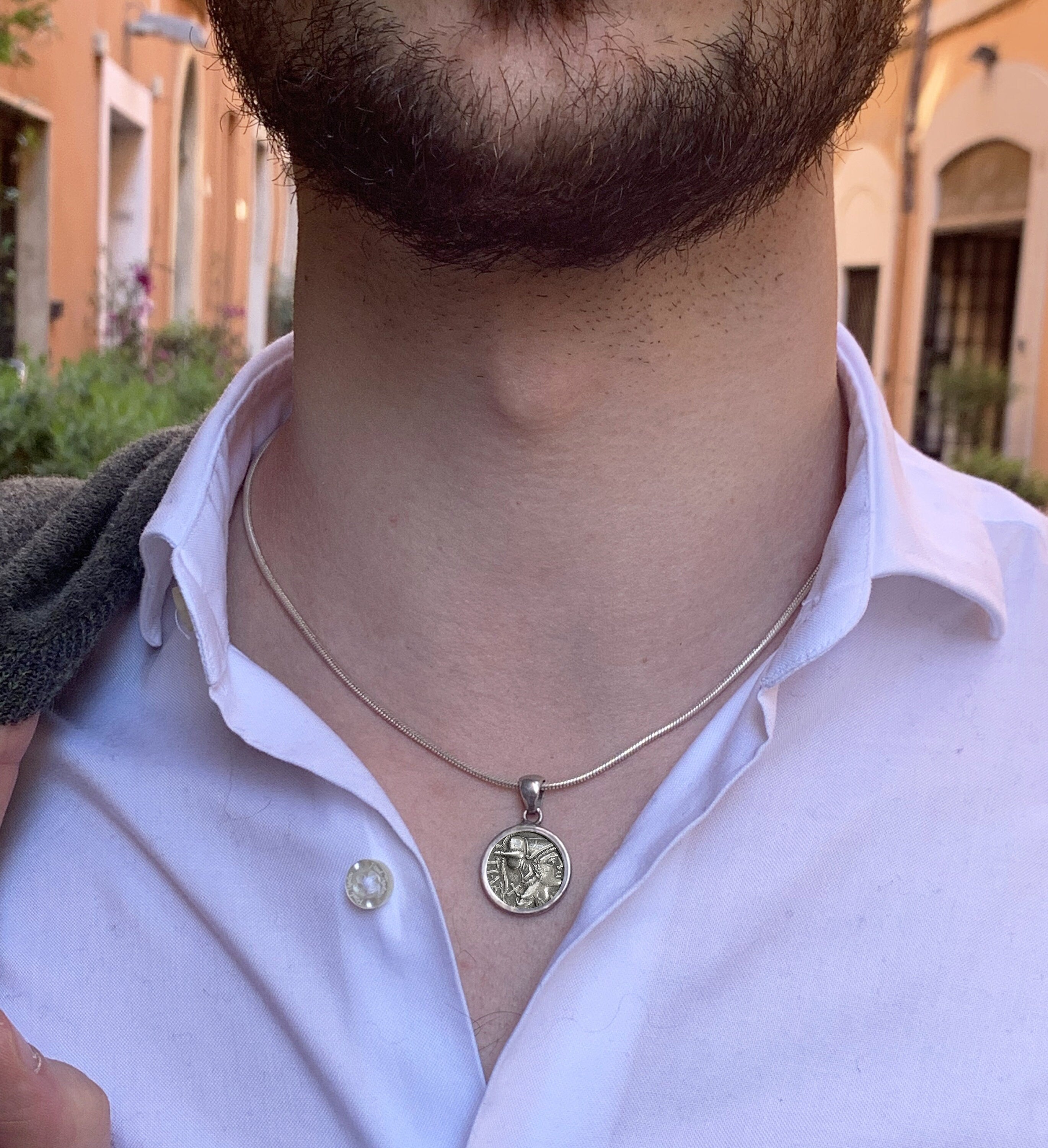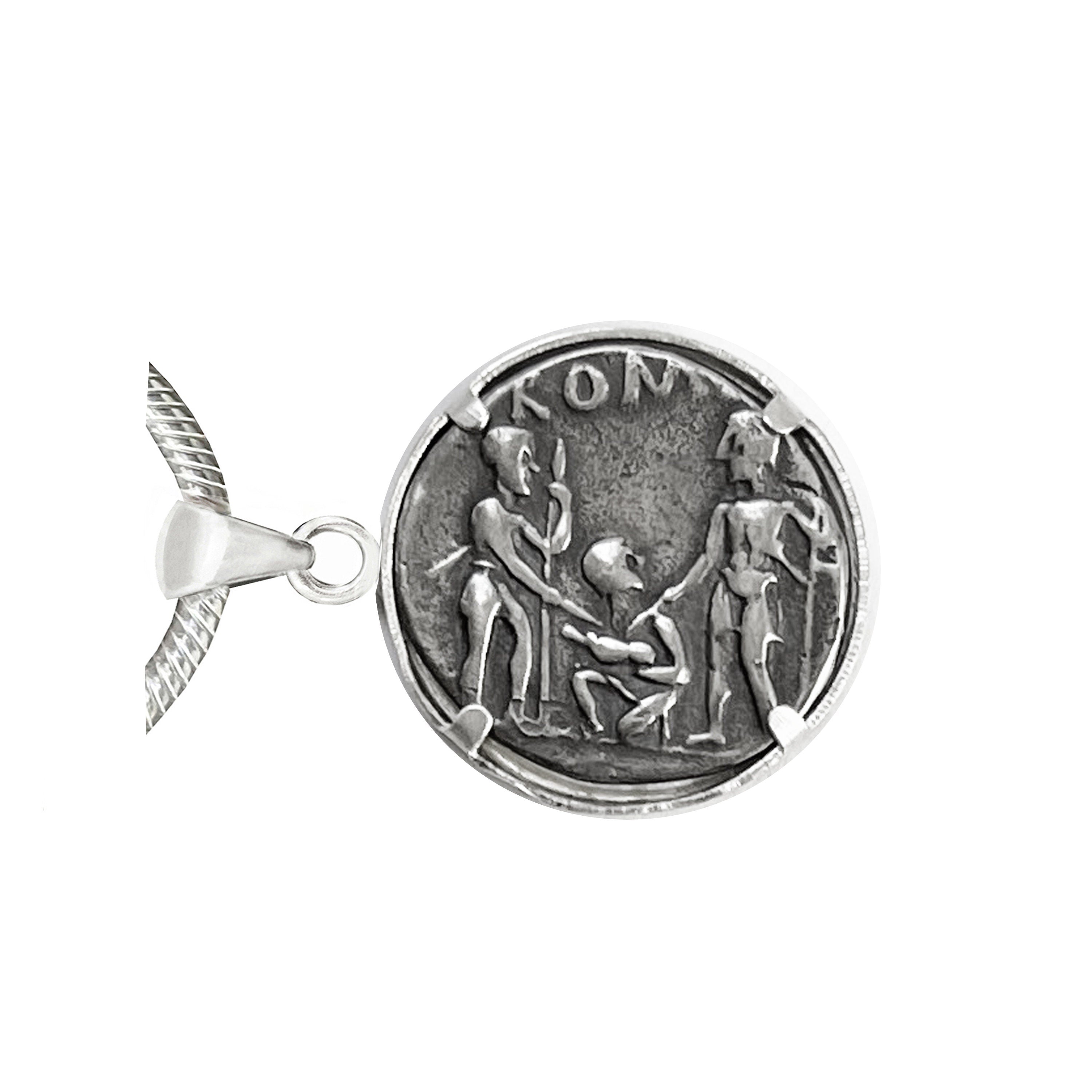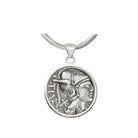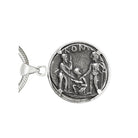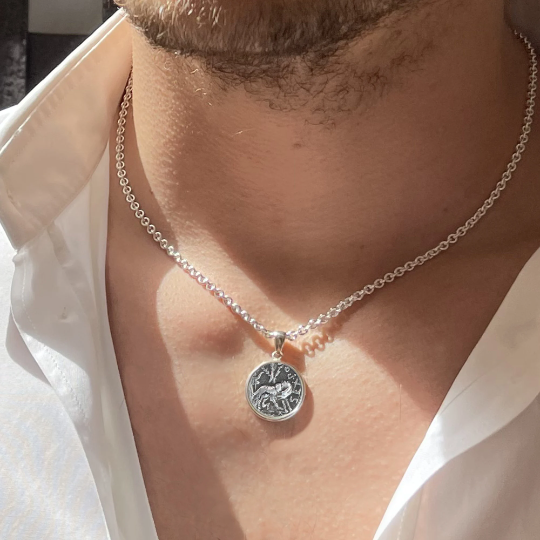GOD MARS Genuine Ancient Roman Coin 137 BC Silver Pendant
This sterling silver pendant has been set with an authentic Roman denarius which dates back to 137 BC, and depicts on one side the head of the god Mars and on the other two warriors with a spear; between the two warriors we see a priest who sacrifices a pig. In ancient Roman religion and myth, Mars was the god of war and also an agricultural guardian, a combination characteristic of early Rome. He was the son of Jupiter and Juno, and he was the most prominent of the military gods in the religion of the Roman army.
Most of his festivals were held in March, the month named for him (Latin Martius), and in October, which began the season for military campaigning and ended the season for farming. Mars represented military power as a way to secure peace and was a father (pater) of the Roman people. In the mythic genealogy and founding myths of Rome, Mars was the father of Romulus and Remus by his rape of Rhea Silvia.
His love affair with Venus symbolically reconciled the two different traditions of Rome's founding; Venus was the divine mother of the hero Aeneas, celebrated as the Trojan refugee who "founded" Rome several generations before Romulus laid out the city walls.
Our jewelry store, Serra Roma, proudly presents an exquisite collection that beautifully honors the ancient traditions of Greek and Roman civilizations. Each piece in our collection, including authentic ancient Roman and Greek coins and intaglios, is accompanied by a certificate of authenticity, providing proof of its historical significance and origin.

